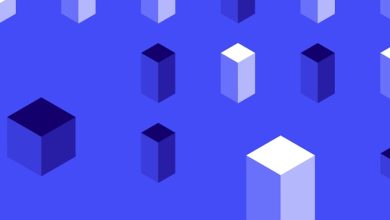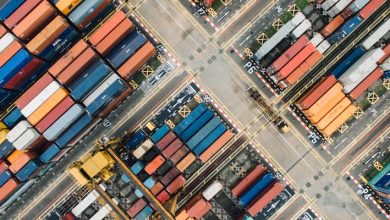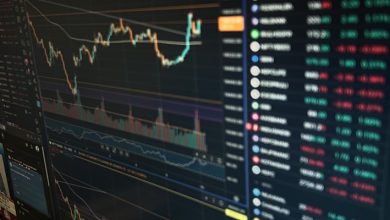The Role of DAOs in Decentralized Decision-Making

- The Evolution of Decentralized Autonomous Organizations (DAOs)
- Exploring the Principles of Decentralized Decision-Making
- Challenges and Opportunities of Implementing DAOs in Governance
- The Impact of DAOs on Traditional Organizational Structures
- Case Studies: Successful Applications of DAOs in Decision-Making
- The Future of DAOs: Innovations and Trends in Decentralized Governance
The Evolution of Decentralized Autonomous Organizations (DAOs)
Decentralized Autonomous Organizations (DAOs) have come a long way in their evolution since their inception. Initially, DAOs were primarily seen as experimental concepts with limited practical applications. However, as blockchain technology has advanced and gained mainstream acceptance, DAOs have become increasingly popular as a means of decentralized decision-making.
One of the key factors driving the evolution of DAOs is the increasing recognition of the benefits of decentralization in decision-making processes. By removing centralized control and distributing decision-making power among a network of stakeholders, DAOs can promote transparency, reduce the risk of corruption, and increase efficiency. This shift towards decentralization has led to a growing interest in DAOs across a wide range of industries.
Another important development in the evolution of DAOs is the emergence of new governance models and voting mechanisms. Early DAOs relied on simple voting structures to make decisions, but as the complexity of DAOs has grown, so too has the need for more sophisticated governance mechanisms. Today, DAOs are exploring novel approaches such as quadratic voting, liquid democracy, and futarchy to improve decision-making processes and ensure the fair representation of all stakeholders.
Furthermore, advancements in smart contract technology have played a crucial role in enhancing the capabilities of DAOs. Smart contracts enable DAOs to automate decision-making processes, enforce rules without the need for intermediaries, and facilitate secure transactions. This automation not only streamlines the operation of DAOs but also enhances their trustworthiness and reliability.
Overall, the evolution of DAOs has been marked by a shift towards greater decentralization, the development of innovative governance models, and the integration of smart contract technology. As DAOs continue to mature and expand their reach, they have the potential to revolutionize decision-making processes across a wide range of industries and create more transparent, efficient, and inclusive systems of governance.
Exploring the Principles of Decentralized Decision-Making
Decentralized decision-making is a key principle of DAOs, allowing for more transparency and inclusivity in the decision-making process. By distributing decision-making power among a network of participants, DAOs aim to prevent centralization of power and promote collective decision-making.
One of the main principles of decentralized decision-making is the concept of token voting, where token holders have voting power proportional to the number of tokens they hold. This mechanism ensures that decisions are made by those who have a stake in the organization, aligning incentives and promoting responsible decision-making.
Another important aspect of decentralized decision-making in DAOs is the use of smart contracts, which are self-executing contracts with the terms of the agreement directly written into code. Smart contracts help automate decision-making processes, ensuring that decisions are executed as intended without the need for intermediaries.
Overall, decentralized decision-making in DAOs is a powerful mechanism for fostering community involvement, promoting transparency, and ensuring that decisions are made in the best interest of the organization as a whole.
Challenges and Opportunities of Implementing DAOs in Governance
Implementing DAOs in governance presents both challenges and opportunities for organizations looking to embrace decentralized decision-making.
One of the main challenges is the lack of regulatory clarity surrounding DAOs. As these organizations operate without a central authority, it can be difficult to determine who is accountable for any potential legal or regulatory issues that may arise. This uncertainty can deter some organizations from fully adopting DAOs in their governance structures.
On the other hand, DAOs offer a unique opportunity to increase transparency and efficiency in decision-making processes. By allowing members to vote on proposals using blockchain technology, DAOs can streamline governance processes and reduce the risk of corruption or manipulation. This can lead to more equitable and democratic decision-making within organizations.
Another challenge organizations may face when implementing DAOs is the potential for security vulnerabilities. As DAOs rely on smart contracts to execute decisions, any bugs or vulnerabilities in the code could result in significant financial losses or breaches of sensitive information. It is essential for organizations to prioritize security measures and conduct thorough audits to mitigate these risks.
Despite these challenges, the opportunities presented by DAOs in governance are significant. By leveraging decentralized technologies, organizations can create more inclusive decision-making processes that empower members and increase trust in the organization. Additionally, DAOs have the potential to revolutionize traditional governance structures by enabling greater participation and collaboration among stakeholders.
In conclusion, while there are obstacles to overcome when implementing DAOs in governance, the potential benefits far outweigh the risks. By carefully navigating regulatory challenges, prioritizing security measures, and embracing the opportunities for increased transparency and efficiency, organizations can harness the power of DAOs to create more democratic and effective governance structures.
The Impact of DAOs on Traditional Organizational Structures
Decentralized Autonomous Organizations (DAOs) are revolutionizing traditional organizational structures by introducing a new way of decision-making. DAOs utilize blockchain technology to enable transparent and democratic governance, allowing members to participate in decision-making processes without the need for a central authority.
One of the key impacts of DAOs on traditional organizational structures is the removal of hierarchical systems. In traditional organizations, decisions are typically made by a small group of individuals at the top of the hierarchy. With DAOs, decisions are made collectively by all members, ensuring a more inclusive and diverse range of perspectives.
Moreover, DAOs promote greater accountability and transparency. Since all transactions and decisions are recorded on the blockchain, members can easily track and verify the organization’s activities. This increased transparency helps build trust among members and reduces the risk of corruption.
Another significant impact of DAOs is the elimination of geographical barriers. Traditional organizations are often limited by physical locations, which can hinder collaboration and growth. DAOs, on the other hand, allow individuals from around the world to participate in decision-making processes, leading to a more diverse and global perspective.
Overall, DAOs are reshaping traditional organizational structures by promoting inclusivity, transparency, and collaboration. As more organizations adopt this decentralized approach, we can expect to see a shift towards more democratic and efficient decision-making processes in the future.
Case Studies: Successful Applications of DAOs in Decision-Making
Several case studies have demonstrated the successful applications of Decentralized Autonomous Organizations (DAOs) in decision-making processes. These examples showcase the effectiveness of DAOs in various industries and contexts:
- Agriculture Sector: A DAO was utilized by a group of farmers to collectively decide on which crops to plant based on market demand and weather conditions. This decentralized approach allowed for more efficient decision-making and increased profits for the farmers.
- Real Estate Industry: A group of investors used a DAO to vote on which properties to purchase and manage. The transparent and democratic nature of the DAO ensured that all stakeholders had a say in the decision-making process, leading to successful investments.
- Technology Startups: DAOs have been employed by tech companies to make strategic decisions on product development and resource allocation. By leveraging the wisdom of the crowd, these startups were able to make informed choices that resulted in growth and innovation.
- Non-Profit Organizations: Some non-profits have adopted DAOs to involve their community members in important decisions regarding fundraising, project implementation, and outreach efforts. This inclusive approach has led to increased engagement and support for their causes.
Overall, these case studies demonstrate the versatility and effectiveness of DAOs in decentralized decision-making. By harnessing the collective intelligence of participants, DAOs have the potential to revolutionize how organizations make decisions in the future.
The Future of DAOs: Innovations and Trends in Decentralized Governance
As we look ahead to the future of decentralized autonomous organizations (DAOs), it is clear that there are many exciting innovations and trends on the horizon. These developments are shaping the way in which decentralized governance is evolving and becoming more sophisticated.
One key trend in the world of DAOs is the rise of new governance models that are more inclusive and participatory. These models are designed to give a voice to all members of the organization, rather than just a select few. This shift towards more democratic decision-making processes is a crucial step in ensuring that DAOs remain true to their decentralized roots.
Another important innovation in the world of DAOs is the development of smart contracts that can automate a wide range of governance functions. These contracts are programmed to execute specific actions when certain conditions are met, allowing for greater efficiency and transparency in decision-making processes.
Furthermore, DAOs are exploring new ways to incentivize participation and engagement among their members. This includes the use of token-based voting systems, where members can use their tokens to cast votes on various proposals. By aligning the incentives of all members, DAOs can ensure that decisions are made in the best interests of the organization as a whole.
In conclusion, the future of DAOs is bright and full of potential. With ongoing innovations and trends in decentralized governance, these organizations are poised to play an increasingly important role in shaping the future of decision-making processes. By embracing inclusivity, automation, and incentivization, DAOs are paving the way for a more democratic and efficient future.



